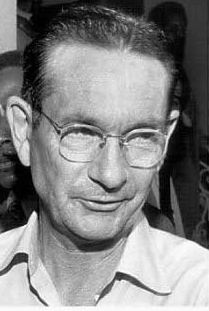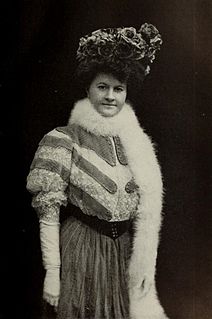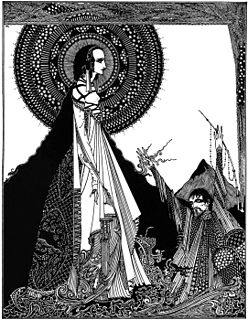
Baton Rouge is the capital of the U.S. state of Louisiana. On the eastern bank of the Mississippi River, it is the parish seat of East Baton Rouge Parish, the most-populous parish in Louisiana. Since 2020, it has been the 99th-most-populous city in the United States, and second-largest city in Louisiana after New Orleans. It is the 18th-most-populous state capital. At the U.S. Census Bureau's 2020 tabulation, it had a population of 227,470; its consolidated population was 456,781 in 2020. It is the center of the Greater Baton Rouge area, the second-largest metropolitan area in Louisiana, with a population of 870,569 as of 2020, up from 802,484 in 2010.

Byron De La Beckwith Jr. was an American white supremacist and Klansman from Greenwood, Mississippi, who assassinated the civil rights leader Medgar Evers on June 12, 1963. Two trials in 1964 on that charge, with all-white Mississippi juries, resulted in hung juries. In 1994, he was tried by the state in a new trial based on new evidence, convicted of the murder by a mixed jury, and sentenced to life in prison.

Ellen Anderson Gholson Glasgow was an American novelist who won the Pulitzer Prize for the Novel in 1942. A lifelong Virginian who published 20 books including seven novels which sold well as well as gained critical acclaim, Glasgow portrayed the changing world of the contemporary South, differing from the idealistic escapism that characterized Southern literature after Reconstruction.

"Annabel Lee" is the last complete poem composed by American author Edgar Allan Poe. Like many of Poe's poems, it explores the theme of the death of a beautiful woman. The narrator, who fell in love with Annabel Lee when they were young, has a love for her so strong that even angels are envious. He retains his love for her even after her death. There has been debate over who, if anyone, was the inspiration for "Annabel Lee". Though many women have been suggested, Poe's wife Virginia Eliza Clemm Poe is one of the more credible candidates. Written in 1849, it was not published until shortly after Poe's death that same year.

"Ligeia" is an early short story by American writer Edgar Allan Poe, first published in 1838. The story follows an unnamed narrator and his wife Ligeia, a beautiful and intelligent raven-haired woman. She falls ill, composes "The Conqueror Worm", and quotes lines attributed to Joseph Glanvill shortly before dying. After her death, the narrator marries the Lady Rowena. Rowena becomes ill and she dies as well. The distraught narrator stays with her body overnight and watches as Rowena slowly comes back from the dead – though she has transformed into Ligeia. The story may be the narrator's opium-induced hallucination and there is debate whether the story was a satire. After the story's first publication in The American Museum, it was heavily revised and reprinted throughout Poe's life.

Mary Ellen Pleasant was a 19th-century entrepreneur, financier, real estate magnate and abolitionist. She was arguably the first African-American self-made millionaire, preceding Madam C. J. Walker by decades.

Samuel Houston Jones was the 46th Governor of Louisiana for the term from 1940 to 1944. He defeated the renowned Earl Kemp Long in the 1940 Democratic runoff primary election. Eight years later, Long then in a reversal of 1940 defeated Jones in the 1948 party primary.
"The Spectacles" is a short story by Edgar Allan Poe, published in 1844. It is one of Poe's comedy tales.
Evelyn Scott was an American novelist, playwright and poet. A modernist and experimental writer, Scott "was a significant literary figure in the 1920s and 1930s, but she eventually sank into critical oblivion."

The Magnolia Mound Plantation House is a French Creole house constructed in 1791 near the Mississippi River in Baton Rouge, Louisiana. Many period documents refer to the plantation as Mount Magnolia. The house and several original outbuildings on the grounds of Magnolia Mound Plantation are examples of the vernacular architectural influences of early settlers from France and the West Indies. The complex is owned by the city of Baton Rouge and maintained by its Recreation Commission (BREC). It is located approximately one mile south of downtown.

Property is a 2003 novel by Valerie Martin, and was the winner of the 2003 Orange Prize. In 2012, The Observer named Property as one of "The 10 best historical novels".

"Thou Art the Man", originally titled "Thou Art the Man!", is a short story by Edgar Allan Poe, first published in 1844. It is an early experiment in detective fiction, like "The Murders in the Rue Morgue", though it is generally considered an inferior story.

Sidonie de la Houssaye, née Hélène Perret, pen name Louise Raymond was an American-born French language writer of Louisiana Creole descent.
Catherine D. Kimball, known as Kitty Kimball, is the retired Chief Justice of the Louisiana Supreme Court.
Mary Estus Jones Webb became Mayor-President of Baton Rouge in 1955 on the death of her husband, Jesse L. Webb Jr. in a plane crash. She was the first woman to serve as Mayor-President of Baton Rouge.
A. J. Meek is an American photographer, teacher, and writer. Meek is known for his selenium toned silver gelatin contact prints made with an 8 x 20 banquet camera of landscapes in Louisiana and the American West and for images that are a balance between the documentary tradition and the fine arts.
Rodnette Bethley Edwards, known as Ronnie Edwards, was an African-American Democratic member of the Louisiana House of Representatives for District 29 in West and East Baton Rouge Parish, Louisiana. She served for forty-four days but did not actually assume the duties of her office because she was in the final stages of a two-year struggle with pancreatic cancer.
Edmond Dwayne Jordan is an American attorney and politician. He is a Democratic member of the Louisiana House of Representatives for District 29. On May 14, 2016, he won a special election runoff to succeed fellow Democrat Ronnie Edwards.

Dima Ghawi is a Jordanian American award-winning author, leadership keynote speaker, and executive coach. She is the founder of Dima Ghawi, LLC, and the author of Breaking Vases: Shattering Limitations & Daring to Thrive - A Middle Eastern Woman's Story (2018).












